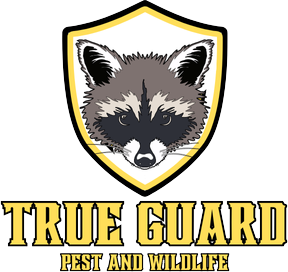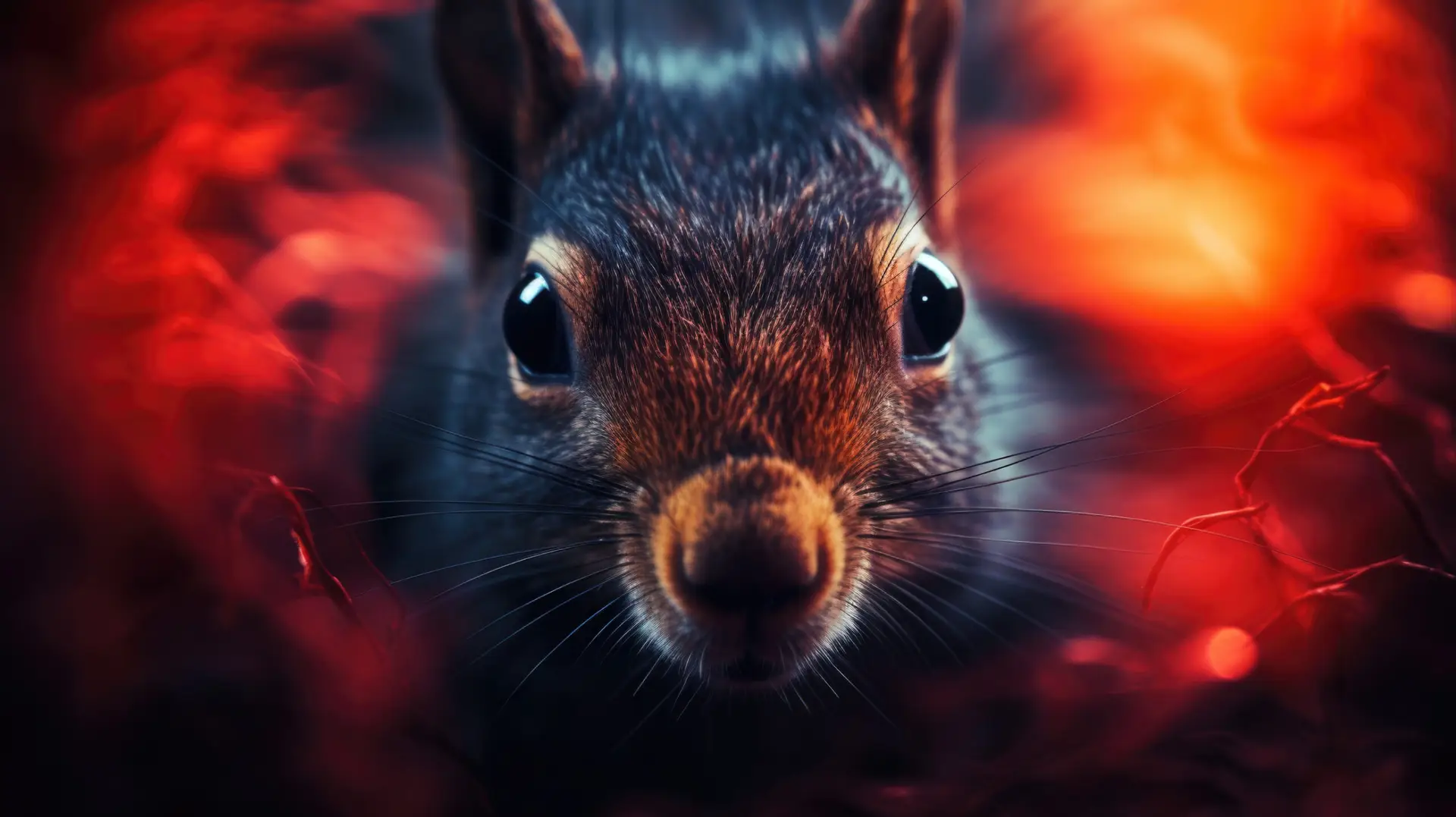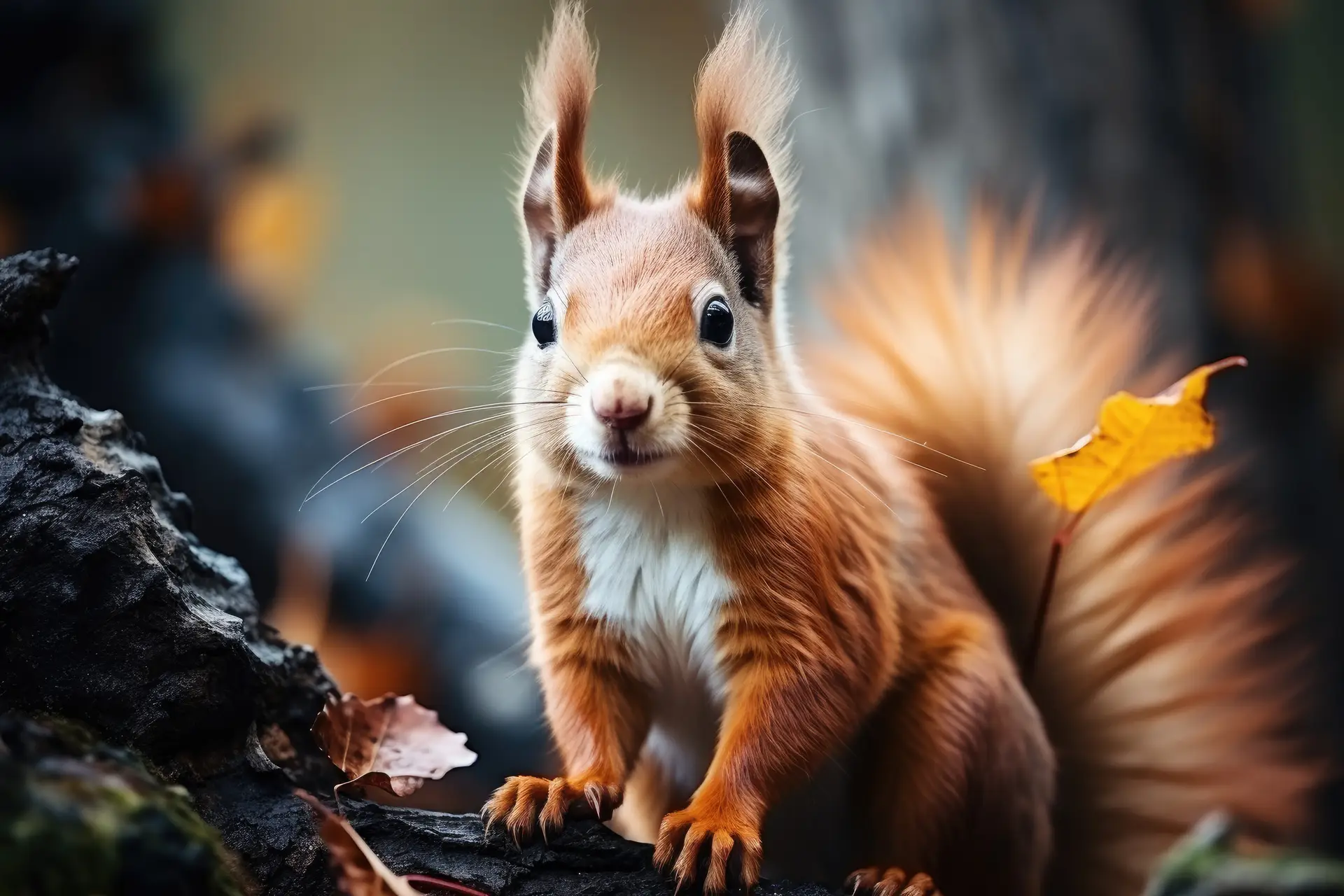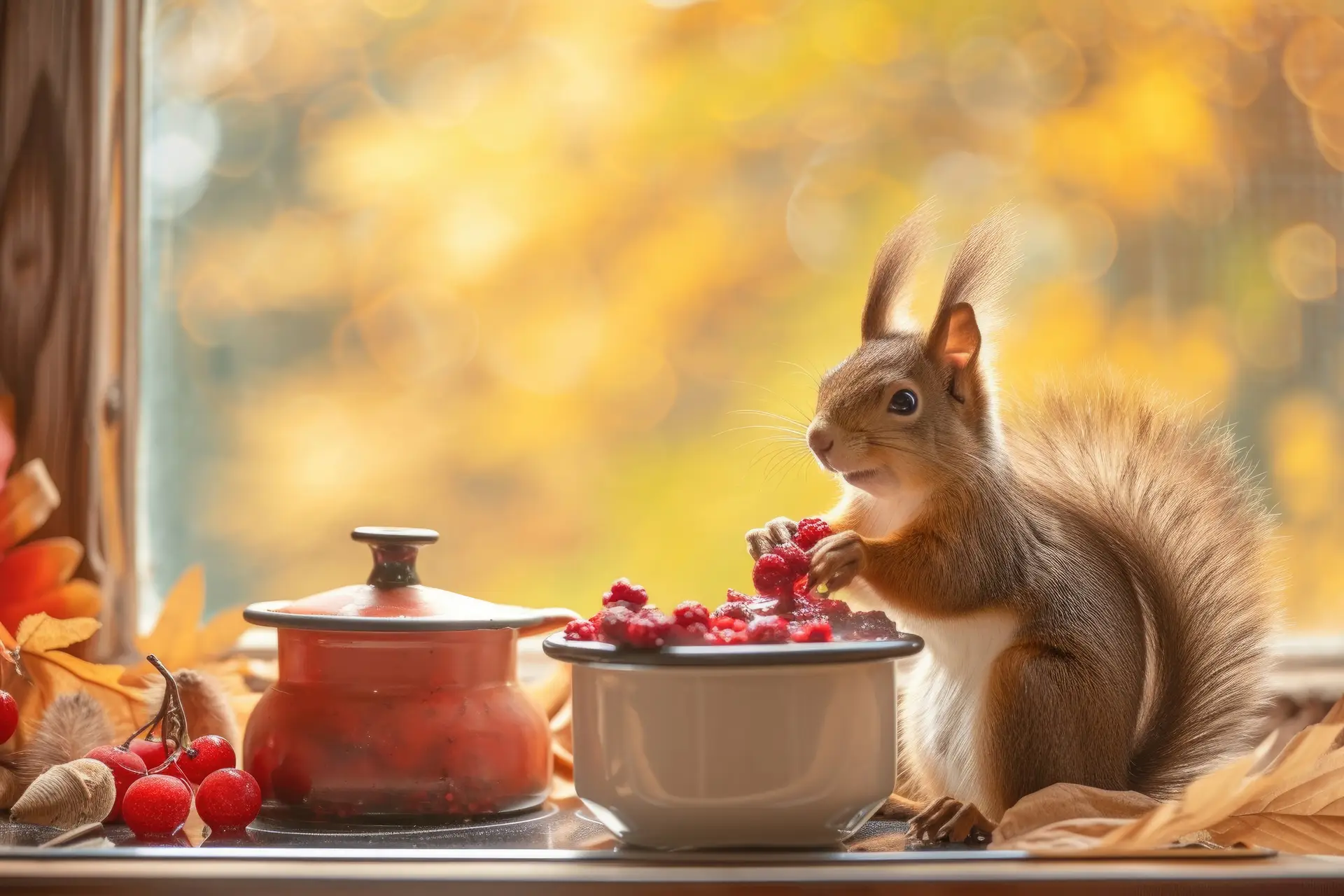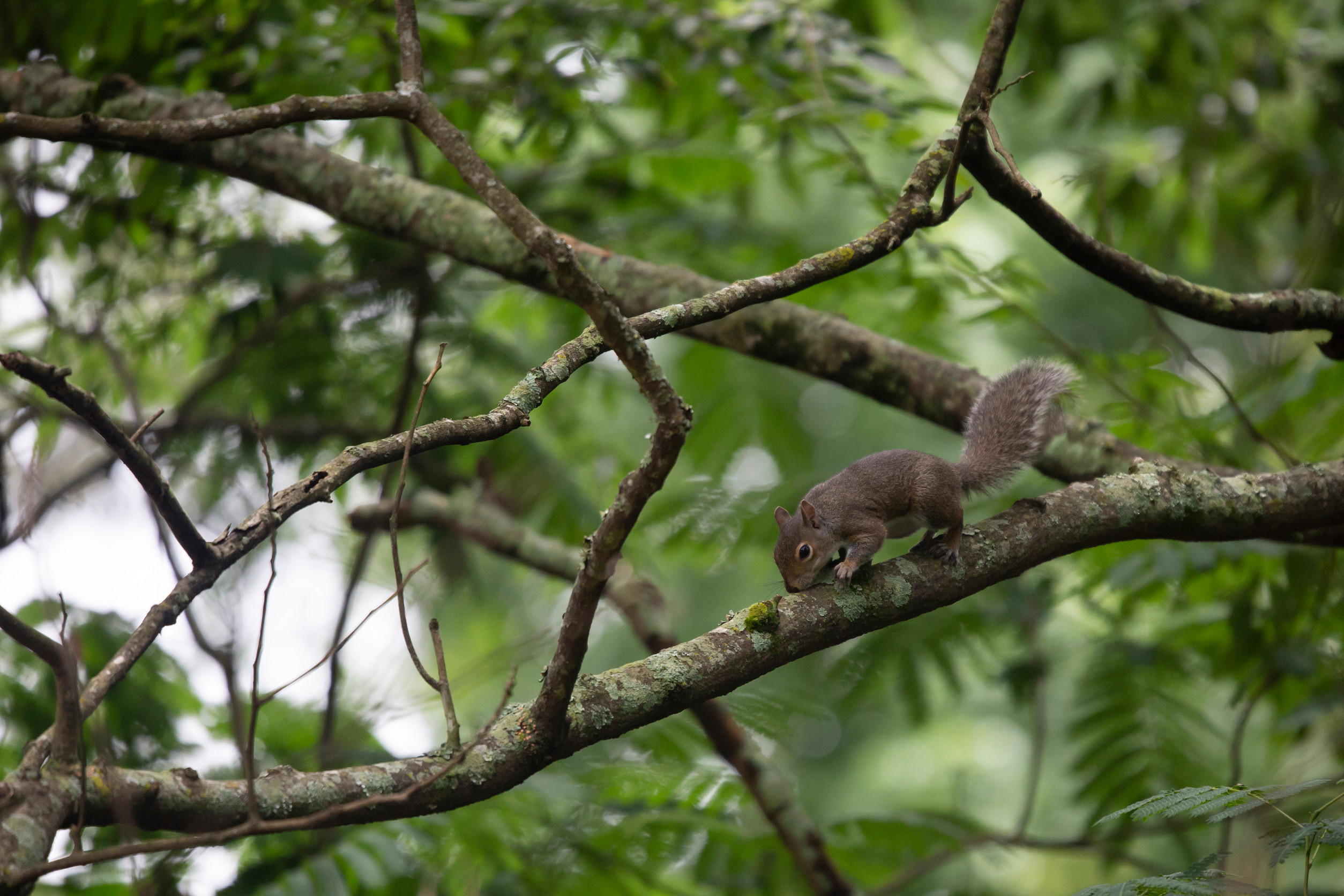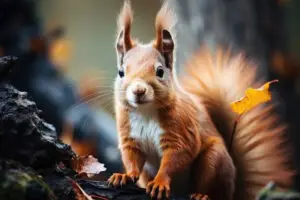Here in the beautiful Pacific Northwest, sharing our space with wildlife is part of life. From the towering Douglas Firs to backyard gardens, squirrels are common sights in Vancouver, WA, Portland, OR, and the surrounding communities. While their bushy tails and quick movements can be entertaining, squirrels can quickly shift from charming critters to significant nuisances when they decide your home or property is the perfect place to live.
Common squirrel species in our area include the Eastern Gray Squirrel (often seen in urban parks and neighborhoods), the native Douglas Squirrel (found more in coniferous forests but adaptable), and sometimes the Northern Flying Squirrel (nocturnal and less commonly seen, but can inhabit attics). Regardless of the species, when they invade your space, True Guard Pest & Wildlife is here to help.
Why Are Squirrels Choosing Your Property?
Squirrels are opportunistic survivors. Our Pacific Northwest environment offers plenty of natural attractions, but our homes and yards provide easy enhancements:
- Shelter: Attics, crawl spaces, wall voids, and chimneys offer warm, dry, and safe havens from predators and our often-wet weather, especially during nesting seasons (spring and late summer).
- Food Sources: Bird feeders are major attractants. Fallen nuts from oak or hazelnut trees, unsecured garbage bins, pet food left outdoors, and even garden vegetables or fruit trees provide ample food.
- Access: Overhanging tree branches act as natural bridges to your roof. Gaps in siding, unsecured vents, damaged soffits, or uncapped chimneys offer easy entry points. Urban sprawl means squirrels are adept at navigating human environments.
Signs You Might Have a Squirrel Problem:
While seeing squirrels in your yard is normal, signs they’ve moved in require attention:
- Daytime Noises: Unlike nocturnal rodents like rats, squirrels are active during the day, especially early morning and late afternoon. Listen for scratching, scurrying, rolling (nuts!), or gnawing sounds coming from attics, walls, or chimneys.
- Exterior Damage: Look for chewed fascia boards, damaged shingles, holes near the roofline, damaged vents, or gnawed entry points.
- Interior Clues: Droppings (similar to large rat droppings, often found concentrated in areas like attics), disturbed insulation, or faint foul odors from urine and feces can indicate an infestation.
- Yard Disruption: While less indicative of an indoor problem, excessive digging in lawns or planters, stripped bark on trees, or raided bird feeders show high squirrel activity on your property, increasing the risk of entry.
The Dangers of Uninvited Squirrels:
Ignoring a squirrel issue can lead to costly and hazardous situations:
- Structural Damage: Squirrels constantly gnaw to keep their teeth sharp. They can chew through wood beams, siding, ductwork, and even PVC pipes.
- Fire Hazard: Chewed electrical wiring in attics or walls is a significant fire risk.
- Insulation Damage: Squirrels tear up insulation for nesting material, reducing your home’s energy efficiency and potentially causing moisture issues.
- Water Damage: Holes created by squirrels can allow rain and moisture to enter, leading to rot and mold.
- Health Concerns: Squirrel droppings and urine contaminate spaces. Squirrels can also carry parasites like fleas, ticks, and mites that could potentially spread to pets or humans.
Common Squirrel Hotspots in PNW Homes:
- Attics: The most common area, offering warmth and seclusion.
- Crawl Spaces: Especially if unsecured, providing ground-level entry.
- Chimneys: Uncapped chimneys are easy entry points for nesting.
- Walls & Ceilings: Squirrels can travel within voids, often heard before seen.
- Roof & Gutters: Damage often starts here, with squirrels chewing vents or fascia.
- Under Decks & Sheds: Providing sheltered outdoor nesting sites.
How to Get Rid of Squirrels in Vancouver & Portland:
Dealing with squirrels requires expertise, especially considering local wildlife regulations in Washington and Oregon. True Guard Pest & Wildlife offers comprehensive, humane solutions on how to get rid of squirrels:
- Thorough Inspection: Our local technicians identify entry points, assess the extent of the infestation, locate nesting sites, and determine the specific squirrel species involved.
- Humane Trapping & Removal: We utilize effective and humane trapping methods compliant with all state and local laws for capturing and handling squirrels. Our focus is on resolving the current infestation safely.
- Exclusion & Prevention: This is key to long-term success. We seal entry points using durable materials, install chimney caps, repair damaged vents, and secure potential vulnerabilities to prevent future intrusions.
- Habitat Modification Advice: We provide practical recommendations, like trimming tree limbs back from your roofline (at least 6-8 feet) and securing food sources.
- Cleanup & Sanitation: If squirrels have nested indoors, we can advise on or assist with removing contaminated insulation, droppings, and nesting materials, followed by sanitizing the affected area to address health risks.
DIY Steps to Make Your Property Less Appealing:
While professional removal and exclusion are often necessary for active infestations, you can make your property less inviting:
- Manage Food Sources: Remove bird feeders or switch to squirrel-proof models (and clean up spilled seed). Secure trash cans tightly. Feed pets indoors. Harvest garden produce promptly.
- Trim Trees & Shrubs: Keep branches trimmed well away from your house, particularly the roof.
- Secure Your Home: Regularly inspect your roof, soffits, fascia, and vents for damage or gaps. Install a chimney cap. Seal any openings larger than a quarter-inch.
- Protect Gardens: Use wire mesh (like hardware cloth) around garden beds or at the base of fruit trees if squirrels are causing damage there. Note: Repellents often have limited and temporary effectiveness.
Why Choose True Guard Pest & Wildlife?
When facing a squirrel problem in the Vancouver, WA, or Portland, OR area, True Guard offers:
- Local Expertise: We understand the specific challenges and squirrel species common to the Pacific Northwest.
- Humane & Effective Methods: We prioritize safe and humane removal and adhere strictly to Washington and Oregon wildlife regulations.
- Comprehensive Service: From inspection and removal to exclusion and cleanup advice, we offer a complete solution.
- Safety First: Our trained technicians handle wildlife safely, protecting you and your property.
- Long-Term Prevention: Our exclusion work aims to keep squirrels out for good.
Don’t let squirrels damage your home or peace of mind. If you suspect a squirrel issue in the Vancouver, WA, or Portland, OR metro area, contact True Guard Pest & Wildlife today for professional squirrel removal!
